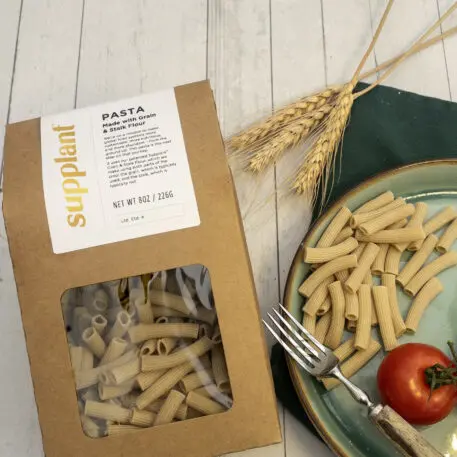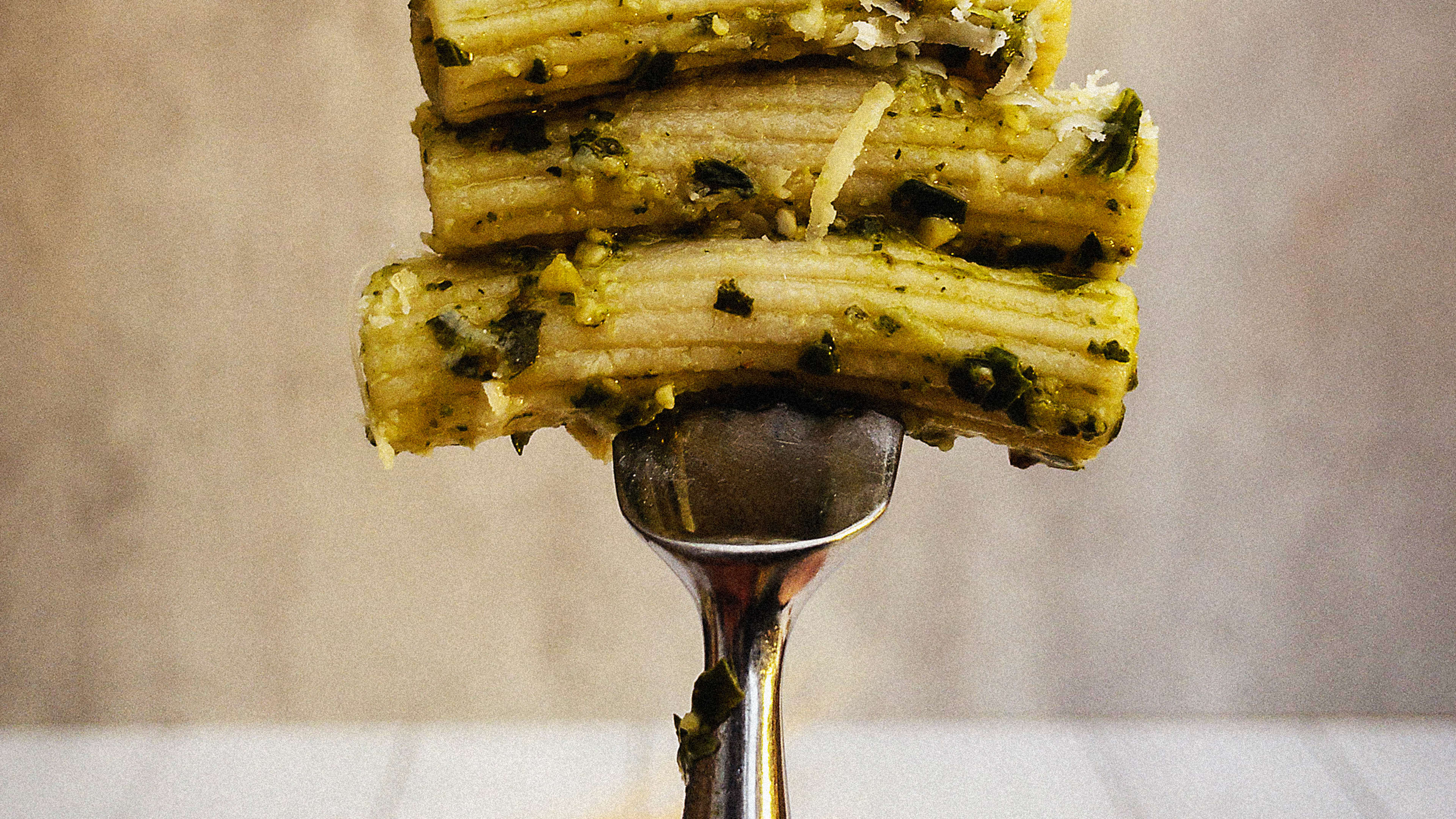If you buy a shortbread cookie from one of Thomas Keller’s bakeries, it may taste the same as any other shortbread cookie, but it has a secret. The cookies are made with Supplant, a sugar substitute that’s largely fiber, made from the husks of corn and containing less than half the calories of regular sugar.
The concept behind the Supplant Company’s latest product is similar. Its new flour substitute comes from the stalk of the wheat plant, which is usually wasted but provides health and sustainability benefits. As with the sugar substitute, the company has teamed up with Keller to experiment with the product and showcase potential applications.
Typically, only about one-third of a wheat crop is used: the grain itself. It’s processed and made into flour for everything from pasta to pastries. The rest of the plant, essentially the stalk, is discarded. It’s left to decompose or is burned, which releases greenhouse gases into the atmosphere.
“The amount we eat is so small, and the amount we waste is so big,” says Tom Simmons, a biochemist who’s the founder and CEO of the U.K.-based Supplant Company. “Mainly because people don’t think of it as food.”
Working with wheat farmers in the Midwest, Supplant’s team processes the entirety of the stalks into flour. It’s a more sustainable process because it produces more food per acreage, so uses less land. That also means less use of pesticides and other chemical pollutants and fewer emissions.
Sustainability aside, there also are health benefits. The stalk is made mainly of fiber, is lower in calories, and has a low glycemic index (which is how quickly a food causes our blood sugar to rise).
But fiber doesn’t behave like classic starch, which is mainly concentrated in the grain of the plant. And starch is essential in the kitchen, offering binding and adhesion properties necessary for things like bread. So, unlike Supplant’s sugar product, which is a complete substitute, the flour is a mix of grain and stalk flour.

Keller showcased the product at a March dinner at Per Se, his three-Michelin-star restaurant in New York. With the flour, his kitchen staff made a tasting menu featuring crackers, ramen, and different kinds of pasta that included spaghetti and ravioli. He hopes to start replacing regular flour in pasta dishes across his portfolio of restaurants, which includes the esteemed French Laundry in Napa Valley.
Baking bread is trickier, he says, since it relies more heavily on those sticky and stretchy properties of starch. As such, it will require more trial and error—determining the right amounts of water and yeast—to find the right balance. “Cooking is all about equations,” Keller says. “And when you get to things like this bread, the equation becomes much more important. You can’t make too many mistakes.”
Supplant’s first retail product made with the flour is a rigatoni, containing six times the fiber of regular pasta. Releasing a product made with the flour follows its previous model, when it launched a chocolate bar made with the sugar substitute. Simmons says that’s a better strategy than simply selling bags of sugar or flour for the home cook. “It’s less of a sexy proposition when you sell a bag of powder versus finished products,” he says. The company’s chocolate bars are in almost 400 stores nationwide, including Kroger-owned Fred Meyers in the Pacific Northwest.
These bars are just the beginning of Supplant’s sugar-substitute products. Though Simmons says it’s a slow-moving process, the company is working with multinational companies in four areas—chocolate, cereal, baking, and ice cream—to build Supplant into their processes.
Recognize your brand’s excellence by applying to this year’s Brands That Matter Awards before the early-rate deadline, May 3.
